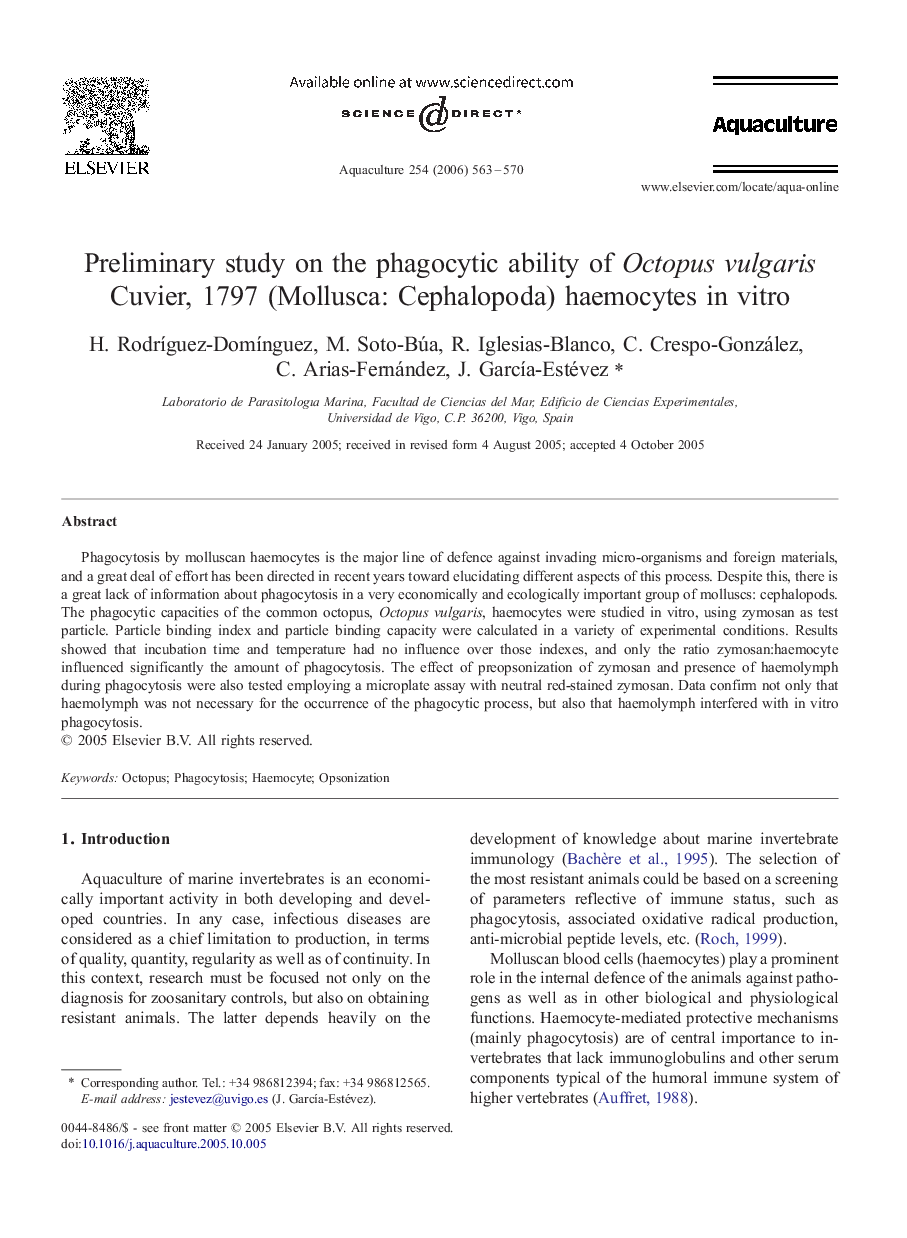| Article ID | Journal | Published Year | Pages | File Type |
|---|---|---|---|---|
| 2426027 | Aquaculture | 2006 | 8 Pages |
Phagocytosis by molluscan haemocytes is the major line of defence against invading micro-organisms and foreign materials, and a great deal of effort has been directed in recent years toward elucidating different aspects of this process. Despite this, there is a great lack of information about phagocytosis in a very economically and ecologically important group of molluscs: cephalopods. The phagocytic capacities of the common octopus, Octopus vulgaris, haemocytes were studied in vitro, using zymosan as test particle. Particle binding index and particle binding capacity were calculated in a variety of experimental conditions. Results showed that incubation time and temperature had no influence over those indexes, and only the ratio zymosan:haemocyte influenced significantly the amount of phagocytosis. The effect of preopsonization of zymosan and presence of haemolymph during phagocytosis were also tested employing a microplate assay with neutral red-stained zymosan. Data confirm not only that haemolymph was not necessary for the occurrence of the phagocytic process, but also that haemolymph interfered with in vitro phagocytosis.
